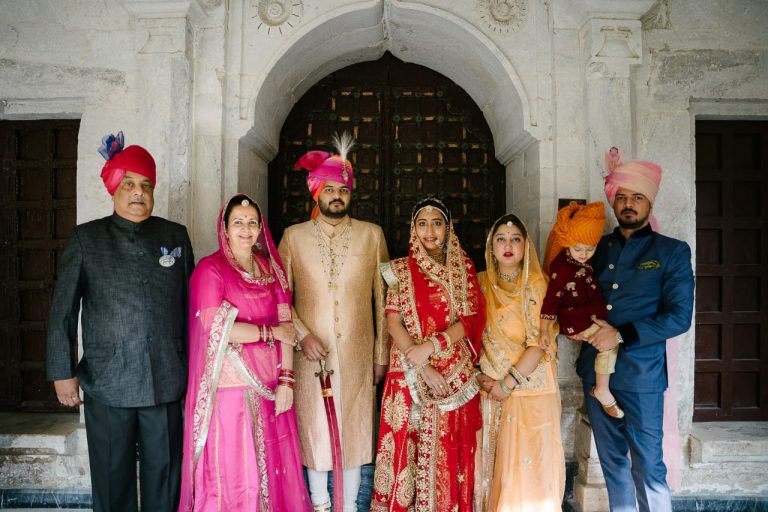
Pakistan for me has never been a forbidden word because I have always had family on the other side of the border. I belong to a village called Meja in Rajasthan, and my grandfather’s sister Indira Kumari is married in Amarkot, Sindh Pakistan.
By Priyamvada Singh
This January, Indo-Pak Peace Summit beautifully celebrated the co-existence of centuries old socio-cultural legacies across recently drawn lines of control. As I binge-watched an interesting ensemble of women panelists from both nations discuss art, architecture and literature, I was compelled to validate the sensitivity and sensibility of the quintessential feminine.
The categorical relevance of this initiative inspired me to revisit the Indo-Pak relation dynamics within my own extended family, and the journey down memory lane reinstated my belief that women have and always will be the most capable ambassadors of transnational culture.
Pakistan for me has never been a forbidden word because I have always had family on the other side of the border. I belong to a village called Meja in Rajasthan, and my grandfather’s sister Indira Kumari is married in Amarkot, Sindh Pakistan.
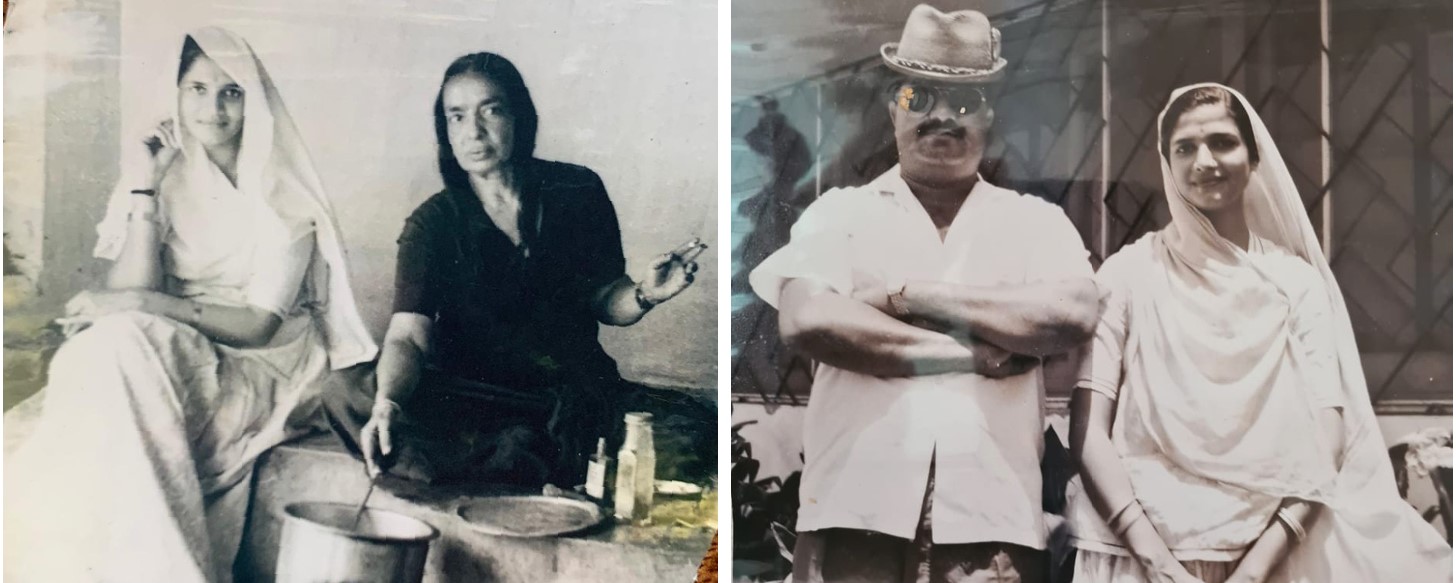
Throughout my life, I have witnessed Indira Ba visiting us along with her family just like her two other sisters who visit us from Gujarat and Uttar Pradesh. In fact, Agra and Amarkot meant the same to me until I grew up and geography lessons got the better of me!
Indira Ba was married to the late Balbeer Singh Sodha. The Sodhas are known to be the only Rajput clan in the new nation of Pakistan, and since they cannot marry within their clan, they must seek matches with families in India. Sodhas are proud practitioners of Hindu traditions and culture, but also full of reverence towards their country Pakistan.
Indira Ba’s father-in-law had passed away just before Partition, so the pressure fell upon her mother-in-law Dev Kanwar to decide whether to migrate to India or stay back and face an uncertain fate. Her family in Jaipur tried their best to pursue her to return but, as the matriarch of the family, she decided to remain in Sindh.
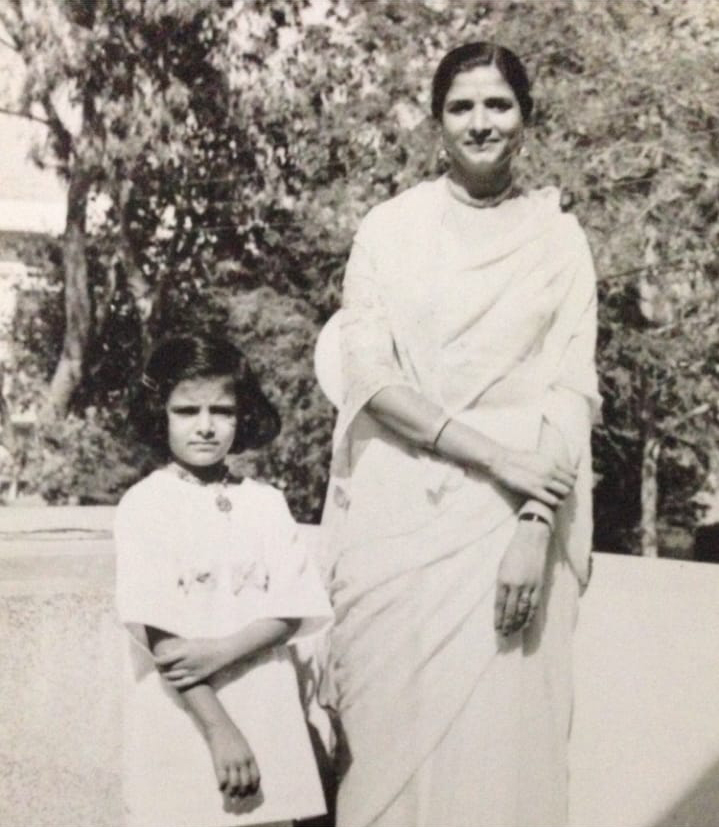
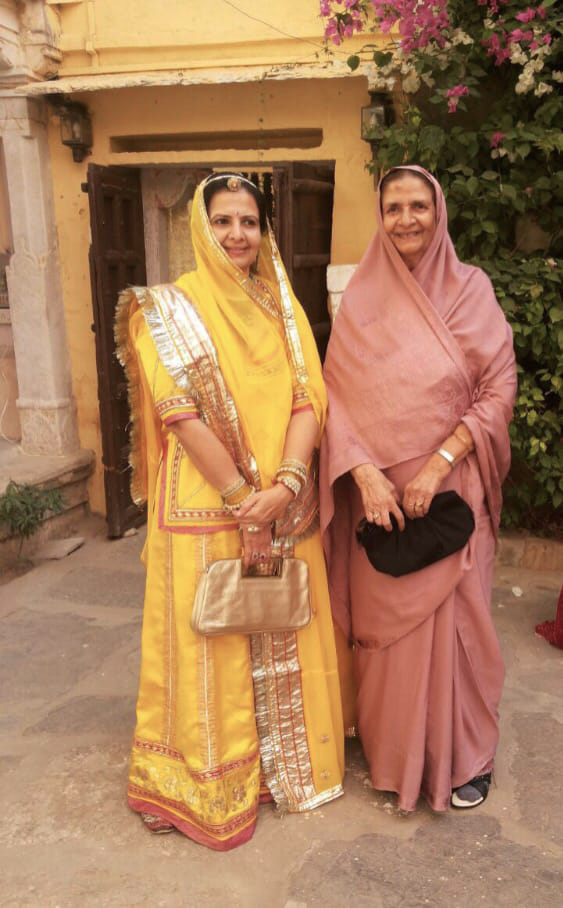
Years later, Dev Kanwar’s choice was validated when her son carved an exemplary political career spanning half a century. The fact that one of Indira Ba’s sons Vikram Sodha has earned a prestigious position in the civil aviation sector goes to prove how the country has embraced them wholeheartedly.
It was quite an extraordinary feat for a relatively naïve woman to take this unconventional decision of sheltering her family under a tattered shroud of an ill-fated Partition. Yet, it was a female foresight that led to Indira Ba’s family creating such a successful and secure life for themselves in spite of being a Hindu family in an Islamic nation.
In the past few years, Indira Ba’s family has had several reasons to rejoice as her grandson Tejvir Sodha from Pakistan married Rajshree Kumari from India, and her granddaughters Kiran and Sonal from Pakistan made India their home by marrying Dhruv Singh and Yash Raj from Jaipur and Baroda respectively.
I was ecstatic about attending all these weddings as they not only united two families, but were captivating communions of two previously integrated countries.
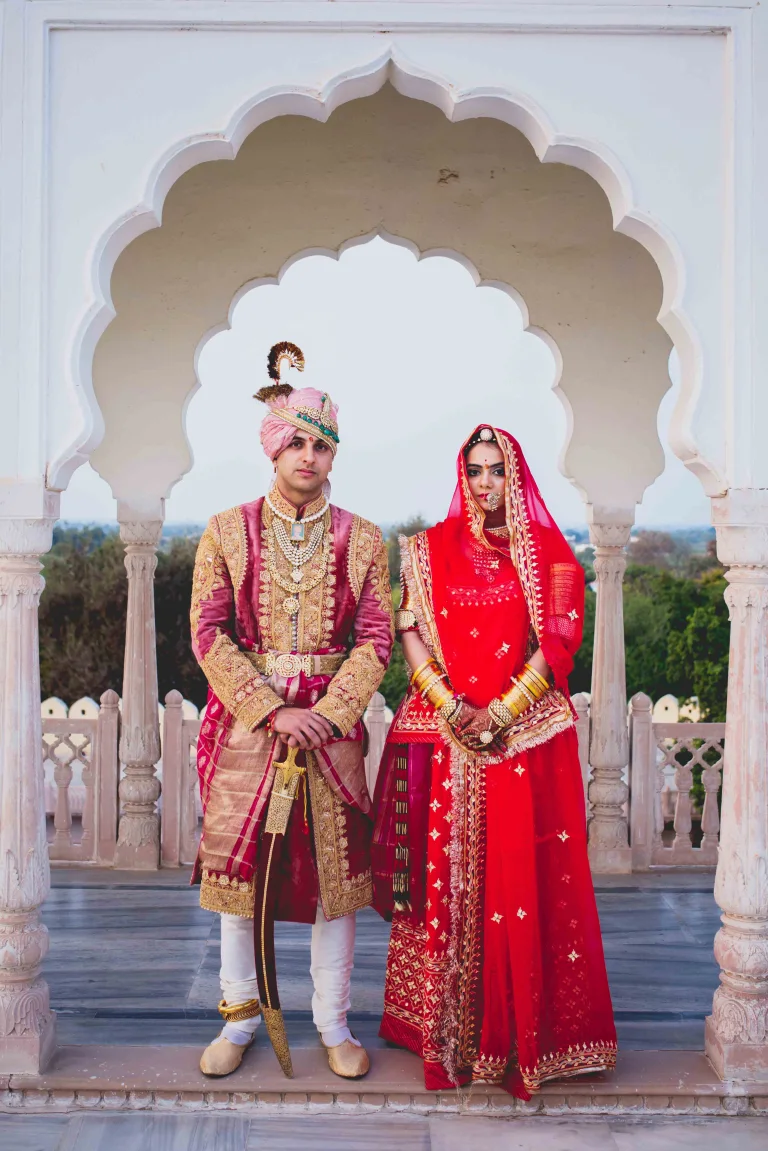
“Marriage is all about striking a perfect balance between one’s own cultural lineage and the cultural milieu of your new family,” says Kiran, who moved to Jaipur five years ago after marriage and instantly fell in love with its skilled art forms and jewels.
Encouraged by her family, she pursued a course in jewelry design and launched a brand of handcrafted jewels that has garnered a positive response on both sides of the border.
Like Kiran, Sonal has also formed a harmonious bond with her new home in Baroda. She is of the opinion that transformation is inevitable even if one is married within the same country so why make a big deal about cross-border weddings?
“I am married in Gujarat, and even if I belonged to Rajasthan instead of Pakistan, I would still have to freshly encounter and embrace things like dhoklas, fafras and meethi daal!” she smiles.
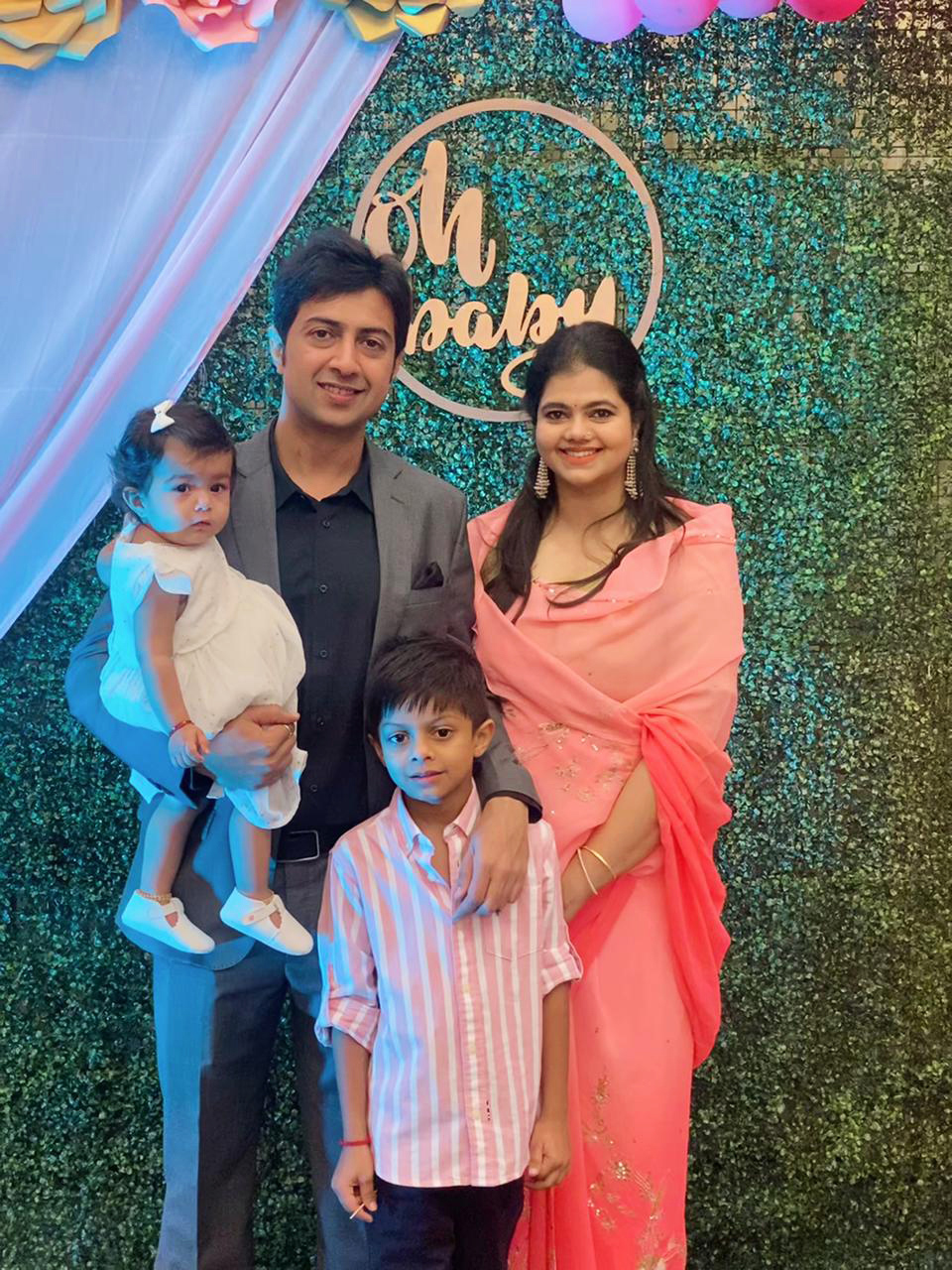
Even as we witness numerous instances of cross-border matrimony resulting in happy marriages, the restrictive visa regime between India and Pakistan often poses problems. Half of Kiran’s trousseau could not get to India in time for her wedding as the family member meant to carry those bags did not get a visa. Days before her wedding, the would-be-bride was sprinting around shops in Jaipur getting things made right from scratch.
As recent as early 2020, my cousin Sheodutt’s baraat which went from Udaipur to Karachi had to be reduced to nine people including the groom as visas were only granted to immediate family.
When I watched the videos of his grand wedding with Priya Sodha and drooled over enticing visuals of exotic Pakistani cuisine, I genuinely wished that more people from India could have got the opportunity to experience this hospitality across our borders.
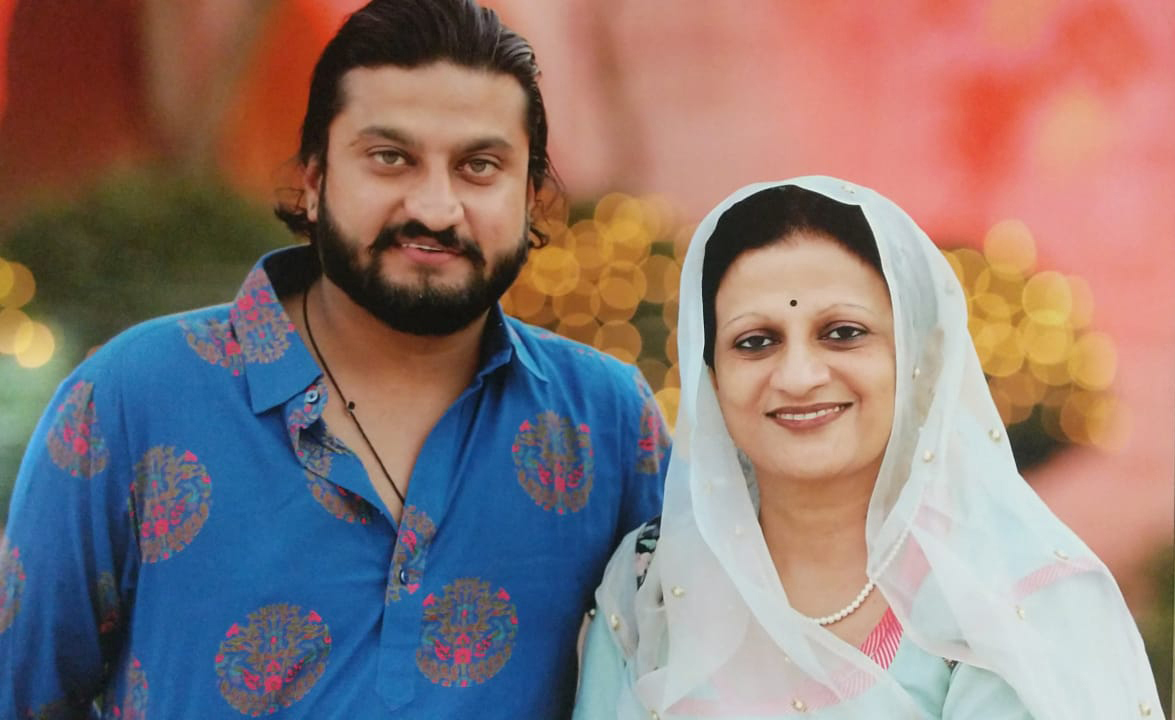
Talking of hospitality, nothing comes close to the pampering one gets in their nanihaal (maternal grandmother’s home). I recently went to mine in Ajmer after a long gap due to the pandemic. As I expressed my gloom about not being able to visit them for 10 months, my cousin Gajraj reminded me that he has not been to his nanihaal for several years. His mother, my aunt Ram Kanwar, belongs to Rar Mau in Pakistan, and she has not visited her parental home for a very long time either.
There is a wonderful tradition irrespective of social stature or city of dwelling: if a Pakistani Sodha visits India, he makes it a point to check on as many baaya (affectionate word for girls) who are married on this side of the border.
One of the Pakistani baayas Neeta Sodha stirred a buzz in 2020 when she contested the local elections just four months after being granted an Indian citizenship and was elected the sarpanch of Natwara Panchayat in Tonk district.
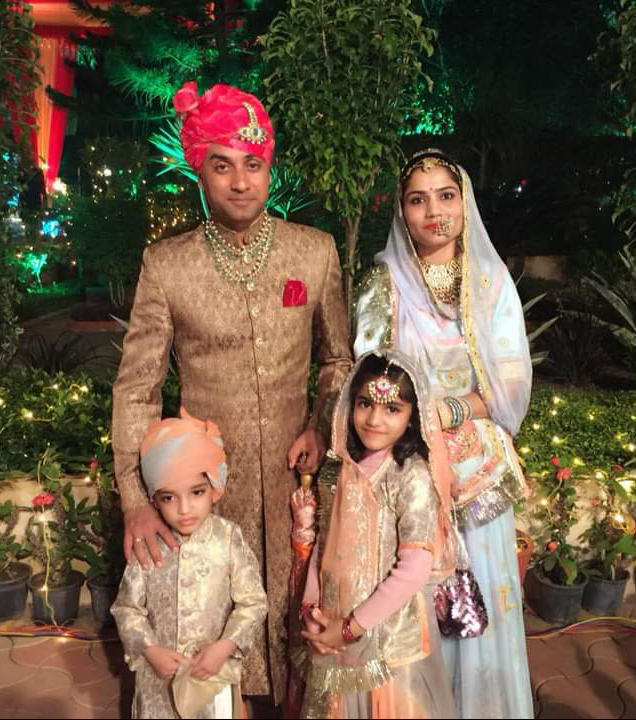
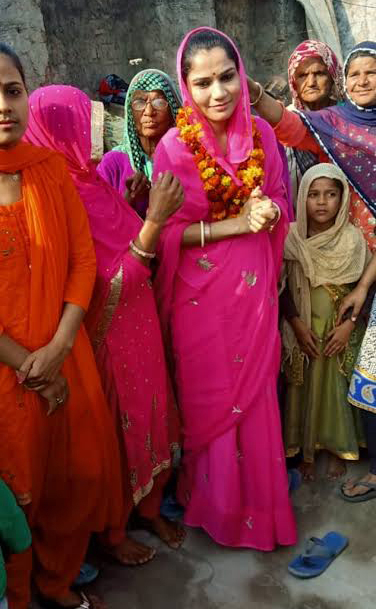
Neeta had migrated to India almost 18 years ago from Sindh’s Mirpur-Khas to pursue her higher education. She settled here after marrying Punya Pratap Karan in 2011. “Since the time I have come here, I have received great support from my family and the people of my area, which has given me the confidence to do something meaningful with my life,” she shares.
After endless conversations with all these cross-border ambassadors of culture, I have come to realise that underneath all our propagated differences, we are all the same, entangled in the threads of common values and ethics. My eloquent aunt Sarita Kumari, who spent the first 20 years of her life in Karachi before getting married in Ghanerao, India, 35 years ago, sums up this situation:
“For 70 years, both our countries have been quarrelling like bickering sisters. It is ironic that we cannot establish peace with each other and yet we shared a Nobel Peace Prize in 2014 [referring to Malala Yousafzai and Kailash Satyarthi]. Borders can try to tear us apart but our destinies are joined at the hip.”
A member of the Global Women’s Peace Initiative, Sarita Kumari believes that whatever the political situation may be, one cannot take away the fact that both the countries have offered unconditional love and acceptance to brides from across borders.
She reminisces how, during these peace talks, the Pakistani delegates would refer to her as “hamari beti” (our daughter) and the Indian delegates would retort saying, “hamari bahu” (our daughter-in-law).
“The magnanimity of our culture is reflected in the fact that it does not discriminate. It embraces everyone who wishes to bask in its splendour, and marriages emerge as the most definitive and organic form of cultural dissemination,” she affirms.
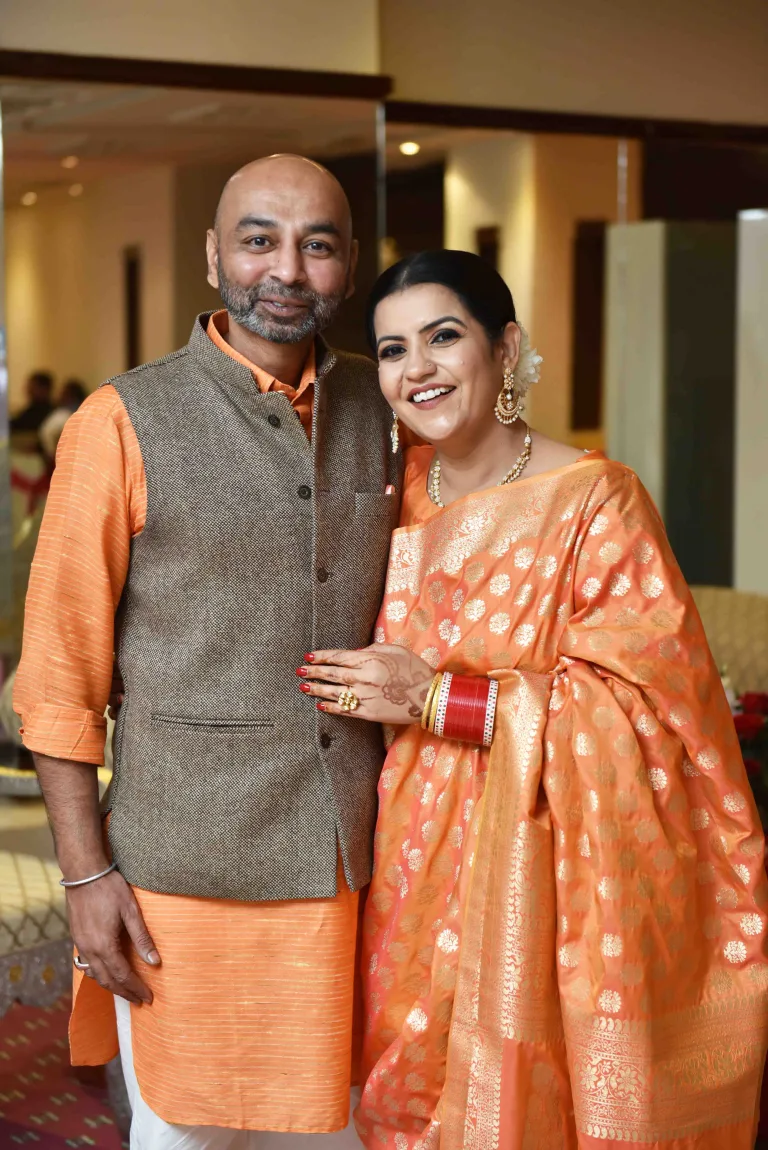
I witnessed another display of cultural camaraderie in recent times when my college friend Mili Duggal married a Pakistani gentleman Sajid Sahibzada in 2019. The wedding celebrations in Lahore were followed by a couple of ceremonies in Chandigarh after which the newlyweds headed back to Washington DC where they currently reside.
I constantly stalked Mili’s Facebook profile in those days to admire the gorgeous pictures of all the wedding festivities, but the image that remains most strongly etched in my memory is one in which she is walking across the Wagah border all dolled up in her post-wedding glow.
The caption said: “Dear good souls of Pakistan, I am going back today and taking back a heart full of love, beautiful memories and warm friendships. I have been truly humbled by your generosity and large-heartedness. I wish that my family, friends and I get a chance someday to show you our world and welcome you into it just the way you did for me. Thank you for opening up your world to me. Phir milenge (we will meet again).”
_________________
 A former TV professional, Priyamvada Singh is pursuing her vision of restoring her family’s 150-year-old ancestral fort in Rajasthan. She won the Nari Shakti Puruskar in 2019 for this endeavour that blends heritage restoration and socio-cultural resurrection. She is one of the co-authors of the anthology Everything Changed After That: 25 Women, 25 Stories.
A former TV professional, Priyamvada Singh is pursuing her vision of restoring her family’s 150-year-old ancestral fort in Rajasthan. She won the Nari Shakti Puruskar in 2019 for this endeavour that blends heritage restoration and socio-cultural resurrection. She is one of the co-authors of the anthology Everything Changed After That: 25 Women, 25 Stories.
Courtesy: eShe (First published in eShe’s March 2021 issue)